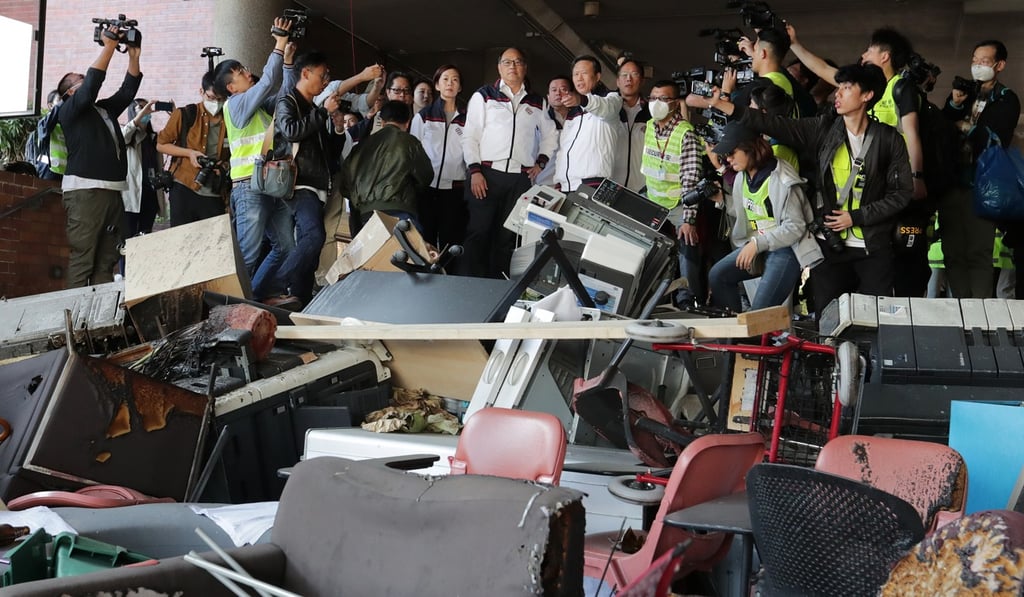Polytechnic University facing immeasurable loss to research projects after radicals trashed campus in battle with police, chairman says
- Lam Tai-fai says mice starved during 13-day stand-off as he bemoans potential loss of data gained from animal testing

The chairman of a Hong Kong university used as a base by radical protesters during a two-week battle with police said the institution was facing immeasurable losses to its research.
Lam Tai-fai, council chairman of Polytechnic University, made his comments after a 13-day police siege of the campus ended on Friday.
PolyU is expected to announce an estimate of its losses next week, and Lam said it aimed to resume classes in mid-January.
“The loss of hardware can be resolved by money,” Lam told a radio programme on Monday. “But we are very worried that we cannot measure the loss in our research. We also don’t know whether it can be carried out again.”

He said the suspension of some research projects, which were being carried out in university labs, might result in inaccurate findings.